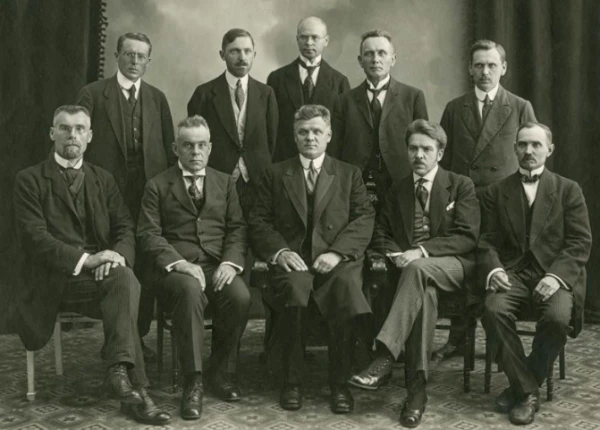
"The Week of Patriots" in the significant month of November for Latvia is filled with various celebrations. However, there is little substantial historical research on this topic.
What do we remember? What events? What is their significance? Let’s try to recall how it all was, together with the participants of the legendary events, whose statements will be heard in Russian for the first time.
November 17, 1918
At the meeting on November 17, 1918, the People's Council of Latvia unanimously elected 41-year-old agronomist, public figure, and leader of the Farmers' Union Karlis Ulmanis as Prime Minister and tasked him with forming a Cabinet of Ministers as soon as possible.
At the solemn act of proclaiming statehood on November 18, the People's Council officially announced its trust in Ulmanis to form the government, and he outlined in his speech the planned program of activities for his cabinet. On November 19, Ulmanis proposed candidates for ministers to the People's Council for approval, and the first official meeting of the government took place on November 26. Before that, Karlis Ulmanis and the ministers met privately.
The formation of the Provisional Government continued until the second half of December 1918. The Latvian Social Democratic Workers' Party (LSDRP) refused to nominate ministers for the government, reserving unlimited opportunities to criticize the government, and together with the socialist revolutionaries, effectively took the position of irreconcilable opposition.
However, even among the so-called "civilian," that is, bourgeois parties, Ulmanis struggled for a long time to find suitable candidates for the positions of heads of defense and agriculture, which at that time were particularly challenging areas, given the onset of the war for Latvia's independence and the need to prepare for agrarian reform.
The first composition of the government included: Ulmanis himself (Prime Minister), Zigfrīds Anna Meierovics (Minister of Foreign Affairs), Kārlis Puriņš (Minister of Finance), Mikēlis Valters (Minister of the Interior), Kārlis Kaspārsons (Minister of Education), Jānis Zālītis (Minister of Protection), Teodors Hermanovskis (Minister of Communications and Labor), Pēteris Juraševskis (Minister of Justice), Jānis Goldmanis (former deputy of the State Duma of Russia and Minister of Agriculture), Jānis Blumbergs (Minister of Welfare), Spriņģis Pāgale (Minister of Trade and Industry), and Eduards von Rosenberg (State Controller).
The latter, by the way, was the only non-Latvian in the Provisional Government. And it was Mr. von Rosenberg, thanks to his Baltic German background, who managed to leave doomed Latvia in 1944 and lived another 10 years in Germany, passing away at the age of 76; only Mikēlis Valters lived longer than him. His stay in Nice, where he went after the liquidation of the Latvian embassy in Belgium, allowed him to live to 94 years. He died in the turbulent year of 1968 in France.
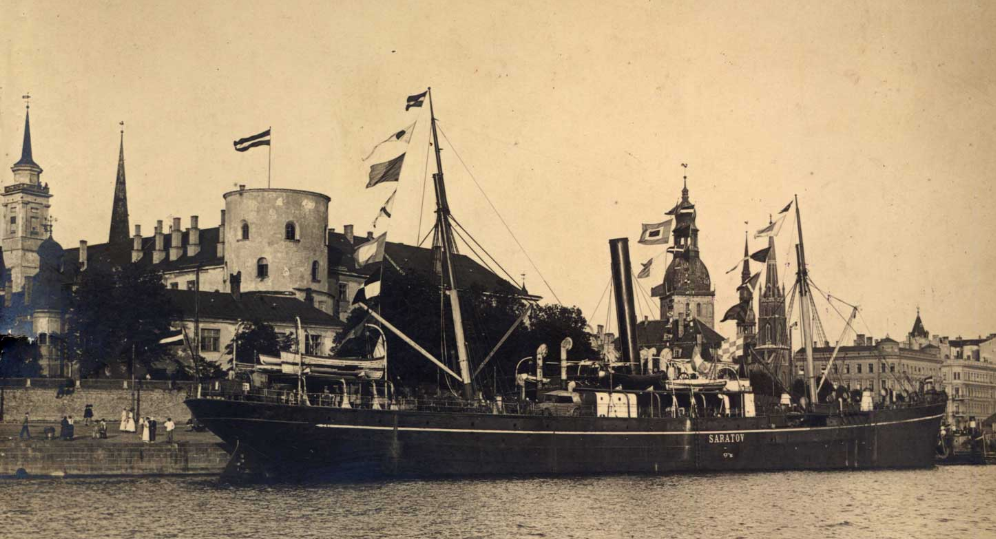
The steamer "Saratov" became a refuge for Ulmanis in Liepāja, brought him to Riga, and could have become a museum, but it crashed on the rocks and was sold for scrap.
Moreover, two participants of the first government of Latvia later became prime ministers themselves – Z. A. Meierovics (1921-1923, 1923-1924) and P. Juraševskis (1928).
"Our country remained bare and empty"
"The situation was still unclear and uncertain, – Karlis Ulmanis recalled 16 years later, – among the new states, we were the only ones from where almost all young people who could bear arms had left... When the Russian troops left Estonia, Estonian young people stayed at home, remained on their land with weapons and everything else that was still required there. The same was true in Lithuania and Poland. And outside of Poland, there were still thousands of trained Polish youths. We were destined for a different fate; our country remained bare and empty... Riga had no connection with the rest of Latvia. We were on enemy-occupied land. There was still some possibility to connect with Vidzeme, but none with Kurzeme. Moreover, part of the population, forced by Russian and German troops to leave, abandoned their homes; only part remained in place."
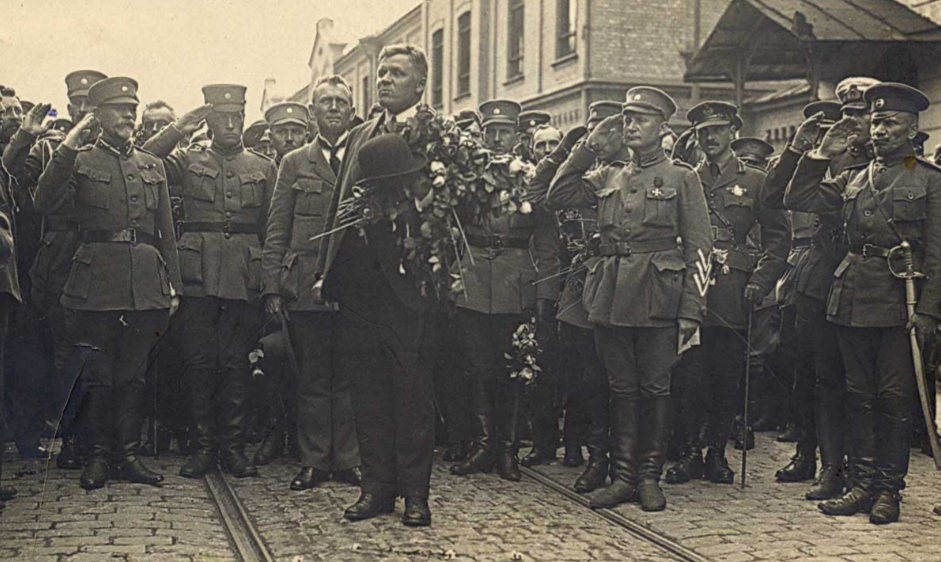
In the summer of 1919, Ulmanis first felt absolute power.
November 9, 1918
Ulmanis, who had already become a leader, reminded in his speech in 1934, "Listen to the steps of history!": – On November 9, other people, German gentlemen together with some Latvians, proclaimed another Latvian state – this happened in the then knight's house (now the building of the Saeima – author's note). To offer this country to the Kaiser of Germany. But on that day, November 9, the Kaiser of Germany abdicated the throne. Of course, we only learned about this on November 10.
Those "founders" were a narrow group. We, the second narrow group, came before the world and said that we also created Latvia, and we would start to quarrel – who are the real founders? Those who established the state on November 9 or those on November 18? And what kind of Latvia would it have been if the Germans had won?
Kurzeme was already almost cleared of Latvians – with the arrival of the Germans in 1915: they calculated that they could settle about a million, or at least 800,000 German families here.
When we talk about German troops in Riga in the fall of 1918, I must tell you: a counselor came to the new government in the first days and said that the German troops needed to be expelled from Riga. When I asked where we would get weapons, he replied – "it must be taken from the German soldiers." To this, I could only respond: "Okay, then let’s go ahead, both with bare hands, and try to take rifles and machine guns from the Germans." To which the gentleman reacted: "No, this issue has not yet been resolved in our faction."
The 30s: Universal Patriotism
On May 15, 1934, Ulmanis staged a coup, and his main task became expanding the social base:
– Don’t think that only one part of the Latvian people can be patriots. We CAN be patriots – all of us. And we will all be! And if there was no resistance from either side, it means everyone WANTS to be patriots. We live in friendship with all our neighbors and uphold the honor of Latvian Latvia. We participate in the work for peace and harmony among nations, freedom and honor of nations! – he said at the celebration in Madona on June 17, 1934.
Interestingly, two years later, in 1936, Latvia would become one of the countries to send a couple of its old armored vehicles, which had served in the War of Liberation, to Spain. For money, of course. And on the side of the republican government would fight citizens of Latvia – Latvians, Jews, Russians.
"Fighting here for republican Spain, I am also fighting for Soviet Latvia," wrote volunteer Karlis Rosenbergs in his letter from Spain. Fourteen volunteers from Latvia died there – more than after the restoration of independence in all foreign missions of the Latvian Republic.
Ulmanis's government would officially send military observers to Spain: in his "Spanish Diary," Stalin's favorite Mikhail Koltsov recounts that he was checked at the border with France by a Latvian officer.
The 1940s: "We must share!"
On June 3, 1940, in his speech in Garsene (now Jēkabpils region), the head of government, who was also president, stated:
– Just as at the beginning of our state, the strongest weapon and the strongest armor were faith and loyalty – so it must be now... People need to live with deep, strong roots in their land, our land... The current year, 1940, is a year of military blockade; we no longer have free communication routes with abroad. This means limitation and reduction at every step, for we can no longer obtain all that we received from abroad and to which we have become accustomed. It is possible that in the future we will feel even more strongly the shortage.
I urge you to remember the old call "neighbor to neighbor." This concerns all of us. Those who have a car, or a house, or anything else – get used to the idea that at least two, three, or four neighbors will need help – either out of friendship or for a reward.
Let everyone remember: if the people and the state are in trouble, then no individual citizen will be well!
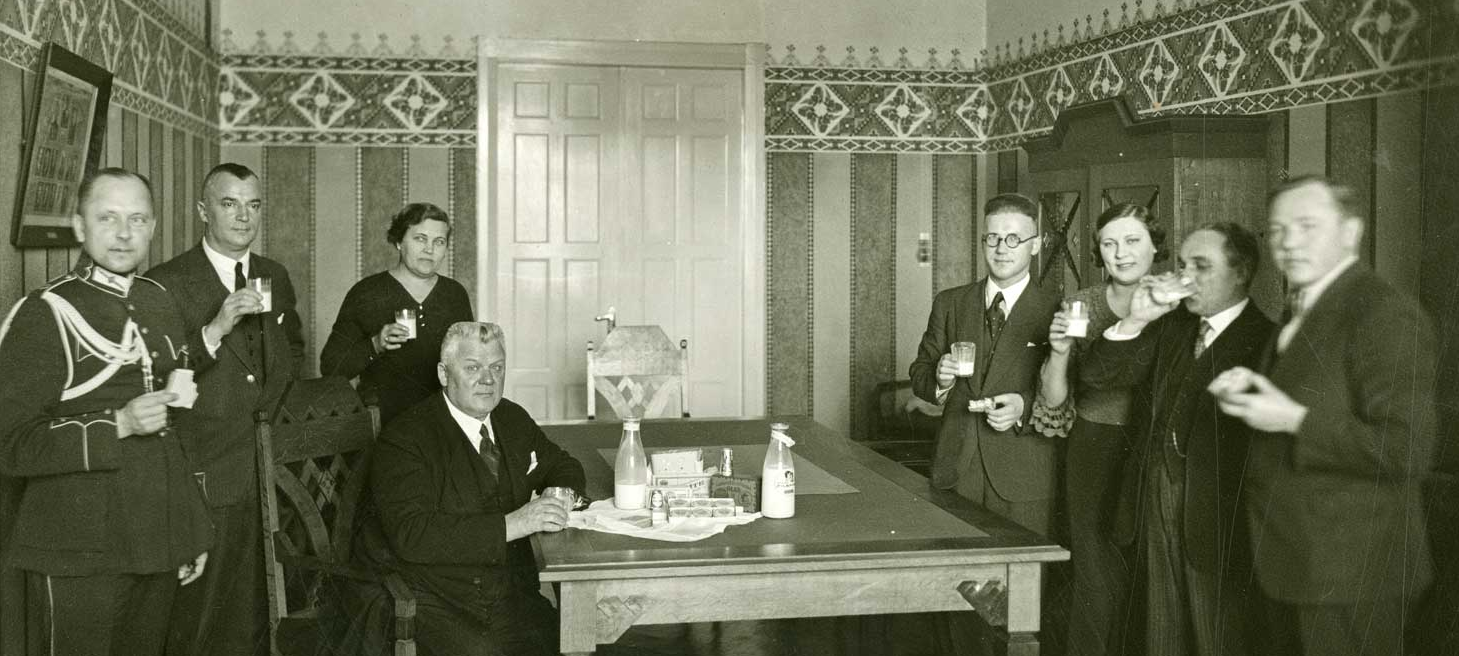
The authoritarian leader preferred milk to all drinks.
Latvia-USSR Relations
But just a couple of weeks later, many of his compatriots for various reasons and occasions rejoiced at the defeat of the existing regime. And he himself addressed the radio on June 18, 1940, with an appeal that our modern historians consider not entirely sincere:
– Citizens! The events of the last 24 hours have stirred all minds, and therefore I, as I have always done at crucial moments, consider it my duty to tell you what the government thinks and does. Soviet troops are entering our country this morning. This is happening with the knowledge and consent of the government – and stems from the existing friendly relations between Latvia and the Soviet Union. I wish that the residents of our country perceive the entering troops as friendly. You can contribute to this by avoiding excessive curiosity and refraining from violating order.
This morning you also heard the news that the government as a whole has announced its resignation and that I have already instructed the ministers to remain in their positions until a new government is formed. Our first task is to remain in our places in unanimity and willingness to work, in service to the cause that is sacred to us – the interests of Latvia and our people.
It is inevitable that the events we are experiencing bring confusion and anxiety into the usual and calm flow of life. But these are transient phenomena. We will overcome this in a few days.
At this moment, I urge you: show in thoughts and deeds the strength of the people's soul, which was evoked by the years of flourishing restored Latvia. Then I will be confident: everything that is happening now and will happen further will benefit our state and the future of the people and our good and friendly relations with our great eastern neighbor, the Soviet Union...
"I remain in my place, you remain in yours," – this conclusion of Ulmanis's speech became a classic. His voice was no longer heard on the air of Latvia, and the owner of it had only 2 years and 3 months left to live.
Contemporaries of the Leader on Ulmanis
John Cooper Wiley (1893-1967), the last envoy of the USA to the First Latvian Republic
– I knew Ulmanis officially and personally, and I respected him greatly... When I was the envoy in Latvia, my impression was that his administration was similar to that which de Gaulle created in France. In my opinion, the goal of Ulmanis's regime was to raise the standard of living of the population of Latvia, to help farmers, small industry, crafts, trade, and to promote education. There was no climate of dictatorship in Latvia. Ulmanis did not amass personal wealth, and as far as I know, he cannot be accused of nepotism...
Mikēlis Valters, a former participant of the first Cabinet, later a diplomat
In the late 1930s, he sharply criticized Ulmanis in private correspondence. But here is the official characterization he gave to his former boss:
– One can fight, but after decades it would be a great weakness not to see the great contribution, not to appreciate the monumental work done by Ulmanis.

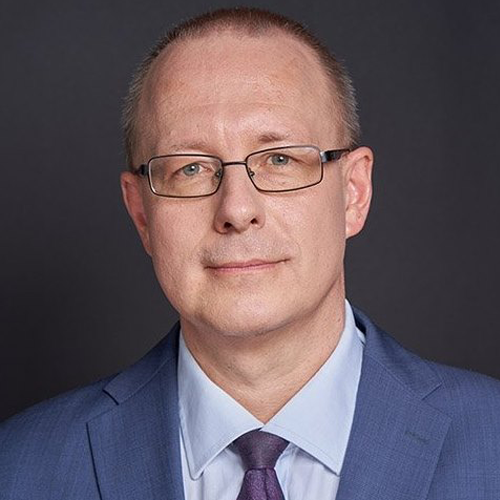
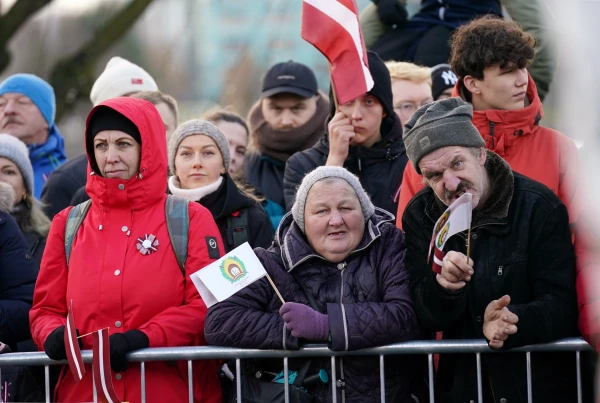

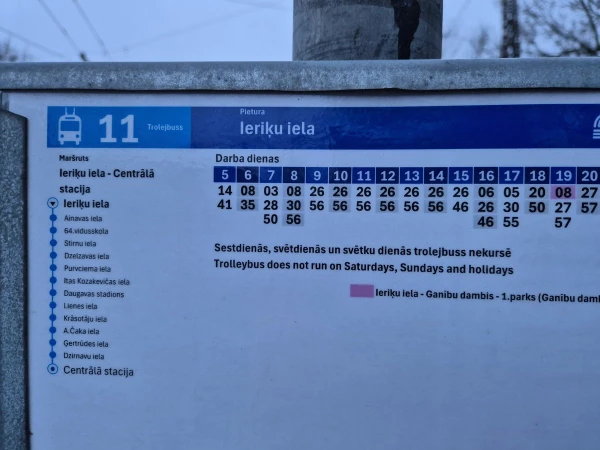
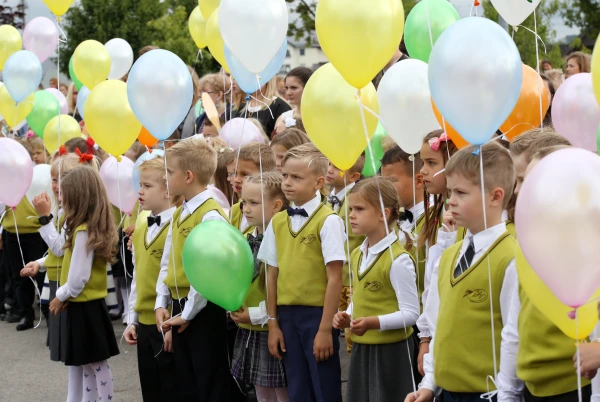


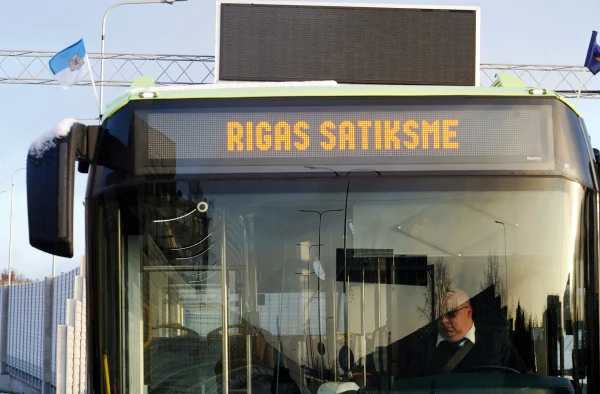




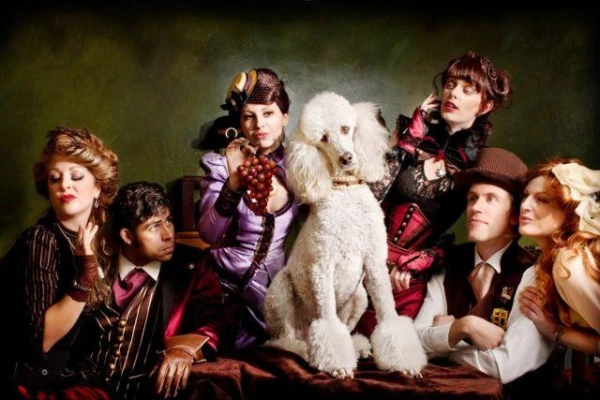

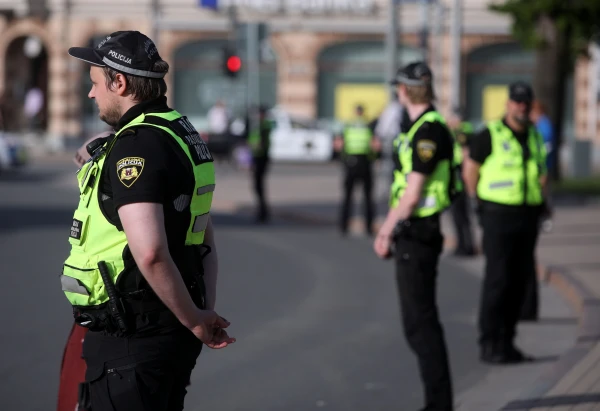
Leave a comment